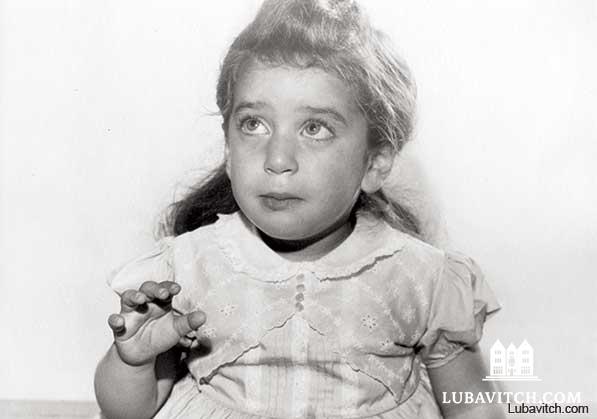When Chana Sharfstein’s daughter, Zlatie, was growing up, many thought the young mother should keep her out of sight. At a time when many hid their children who were developmentally or mentally challenged, Sharfstein refused to hide her autistic daughter Zlatie.
“In 1964 this condition was virtually unknown, still in its infancy. I was overwhelmed, and unsure of how I would cope,” says Sharfstein, the driving force behind Building Bridges: An Evening of Awareness and Appreciation for Individuals with Special Needs.
“There were no occupational therapists, physical therapists or early intervention to assist the child. Few resources such as day camps, schools or residential centers were available.”
The event, coordinated with Friendship Circle to review how attitudes have changed, but how much has yet to change, is scheduled for Sunday March 8th at the Jewish Children Museum.
“When I became involved with people with special needs, the overall attitude toward this segment of our society was negative,” recalls Rabbi Dr. Solomon Wulliger, Chaplain Emeritus of the Brooklyn Office for People With Developmental Disabilities, who has been a long-standing advocate for people with special needs in the Jewish community. “Jewish community leaders, and non-Jewish too, were unaware of the extent of the population of people with special needs.”
 In 1992 Wulliger, who later fostered a child with special needs, published I am My Brother’s Keeper, raising awareness for families with children who have special needs, and are sometimes suffering more than their children.
In 1992 Wulliger, who later fostered a child with special needs, published I am My Brother’s Keeper, raising awareness for families with children who have special needs, and are sometimes suffering more than their children.
The price she paid was steep: her children were taunted by classmates, disrespected by teachers and were the subject of neighbors’ gossip. It was a painful childhood not only for Zlatie, who passed away last year at the age of 53, but for Zlatie’s siblings. Sharfstein now continues to do her part to ensure that such mistreatment is replaced with empathy, kindness and sensitivity.
Dignified Differences: A Special Soul will be distributed at the event. The book features the story of several families, including Sharfstein and Wulliger, struggling to raise their children—those with special needs and their siblings, at a time when attitudes piled unfair hardship to their already difficult situation. Sharfstein and the others tell of their encounters with the Lubavitcher Rebbe, Rabbi Menachem Mendel Schneerson, who embraced these children with particular warmth and love, and a deep respect for the unique Divine gifts that he discerned in them.
Today, says Sharfstein, things are much better with community support, schools catering to this population, and organizations like the ubiquitous Friendship Circle. Still, she feels that the community at large needs to learn more about people with special needs and how they can be more sensitive to them and their families
“We are one community and I want that when you are walking down the street with a child with special needs, the child and parent should not be ignored,” she told lubavitch.com. “People should greet the child and the parent. I want people to not refrain from inviting families and their children with special needs into their homes.”
Lisa Friedman, who lectures on behalf of Matan, an organization that provides a space for conversation and ideas about Jewish special education, says that there is a need to change our language to be inclusive, to refrain from using “us” and “them” in the place of “we.”
“When a community speaks a language of we, that is inclusive, you open the opportunities for people with special needs.”
Friedman, who in her local Jewish school organized the inclusion of children with special needs, says that even today, families often feel their children are excluded. “The most painful aspect for parents is being excluded. Being told ‘your kid is not welcome here’, ‘no your child cannot come to the birthday party’,” Friedman told lubavitch.com.
Click here to learn more about the event.

Be the first to write a comment.